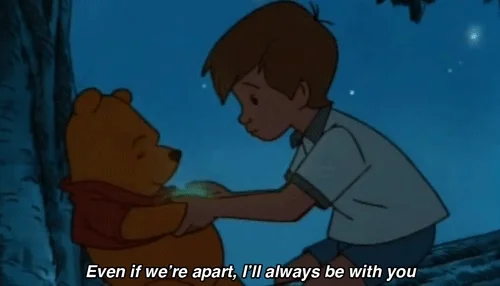Originally published at: Winnie the Pooh is now officially public domain | Boing Boing
…
Happy Public Domain Day, Xi!

Careful, Pooh sticks.
Oh bother.


People outside the US should be careful because the length of copyright protection may differ depending on where you are. For example, in the EU copyright generally persists for 70 years after the creator’s death, which in the case of Winnie-the-Pooh means that the text of the book won’t enter the public domain until the beginning of 2027 (because A. A. Milne died in 1956). As for E. H. Shepard’s cute illustrations, AFAICT those will remain protected in the EU until 2047 (70 years after Shepard’s death in 1976, at age 96), so the European baby onesie makers will have to wait for a bit before being able to launch their royalty-free Pooh lines of designs.
Brace yourselves for “The Seven Pooh-lars of Wisdom”, my Winnie the Pooh/Lawrence of Arabia mash-up, in which a bear of very little brain sets out to overthrow the Ottoman Empire.
I anticipate that the presence of Piglet may cause serious rifts with Pooh’s Arab allies.
Why, don’t Arabs like faithful companions?
That means it’s not long until Dorothy Parker’s 1928 review of WtP should be in the public domain.
“And it is that word “hummy,” my darlings, that marks the first place in “The House at Pooh Corner” at which Tonstant Weader Fwowed up.”
The US has lots of “if/than” and “whichever is shorter” in our copyrights on top of the fact that the rules are different for works created before 1976.
So it is likely more complicated than that in the US as well. In general it’s the life of the creator +70 years, or 120 years after creation/95 after publication for works for hire.
But the rules and terms are different for older works. Whatever box Winnie the Pooh ticked to come due a couple years early. It’s really only the character, and the text of the first book that are public domain as of today.
The name might not even be clear. Disney owns a trademark on “Winnie The Pooh”
That’s what bidets are for, isn’t it?
Imagine my mild confusion and horror that your comment was in reply to my other comment in this thread…
Looking more for a Poor/Lawrence romance novel.
Not sure about the character being public domain. All the original works featuring Sherlock Holmes are public domain, but since the character kept appearing in later works, the estate of Arthur Conan Doyle still has rights to the character and will come after you if you use him without permission. The first Winnie the Pooh book is now out of copyright but I do not think that means the characters are, or the Disney illustrations and character designs are probably not public domain either.
Oh man, I haven’t listened to Jefferson Airplane in eons. Thanks for that. 
This is explained in the article that the original post links to. Once Winnie-the-Pooh is in the public domain, you get to use the characters as described in that book (but not, for example, Tigger, whose first appearance is in the sequel, The House at Pooh Corner, which was published in 1928). The characters from Winnie-the-Pooh, with the possible exception of Christopher Robin, don’t undergo a great deal of development throughout Milne’s œuvre, so putting Pooh as of 1926 into your own stories should be reasonably safe. Disney mostly tweaked what the characters look like, and of course you don’t get to use Disney’s Pooh graphics anytime soon, but personally I’ll take Shepard’s Pooh over Disney’s any day, thank you very much.
The thing with Sherlock Holmes was that the estate of Arthur Conan Doyle attempted to effectively get a backdoor copyright extension for the early Sherlock Holmes stuff (which is now in the public domain) by claiming copyright on the Sherlock Holmes character and arguing that the copyright term on Holmes-the-fictional-character, as opposed to Doyle’s actual stories and novels, ought to count from when the character’s development was finished (and of course the estate of Arthur Conan Doyle would be in a position to ensure that that never happened, by continuing to publish new – authorised – material that adds new facets to the character). That didn’t fly with the courts, though.



